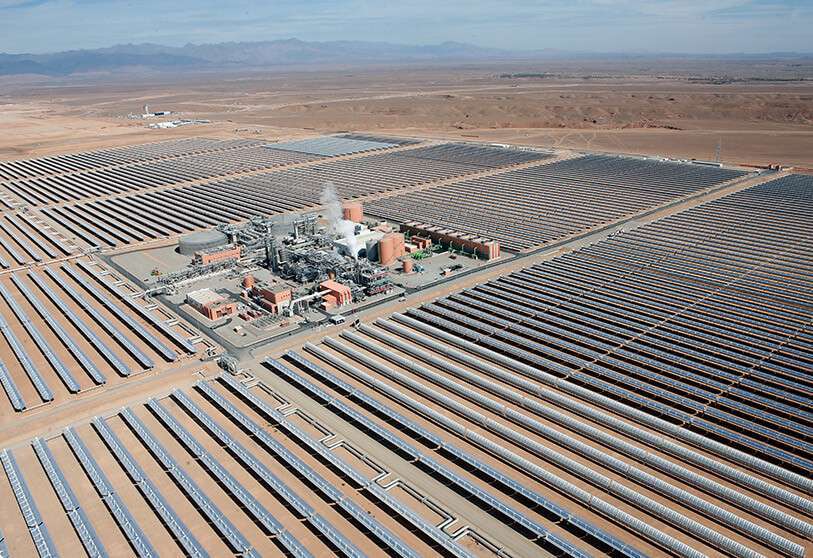Morocco is taking the first steps in the production of green hydrogen and consolidating its commitment to renewable energies. This is demonstrated by the installation of the country’s first green hydrogen production systemthe result of a joint initiative between the Institute for Research on Solar Energy and New Energies (IRESEN) and the Mohamed VI Polytechnic University (UM6P).
This micro-driver system aims produce carbon-free hydrogen from an electrolyzer and photovoltaic solar panels, as well as the production of other products such as ammonia, methane and green fuels. The project is part of “Power-to-X”, a sustainable synthetic fuel production and long-term energy storage program in Morocco, intended to promote sustainable mobility in the country.
“In addition to being a research and innovation tool, this micropilot will play a key role in the training and skills development of IRESEN and UM6P staff and their partners in the hydrogen ecosystem in Morocco”, in particular the National Hydrogen Commission and the Green H2 Morocco Cluster, according to the organization’s press release. Thus, the project aims to encourage investment and research by students, technicians, engineers and managers. public and private sectors.
With the improvement of renewable energy infrastructure, Morocco is positioning itself as a potential country to produce green hydrogen at low cost and meet Europe’s energy needs. The crisis caused by the Russian-Ukrainian conflict and Western sanctions against Russian gas are forcing the continent to seek energy alternatives in countries like Morocco to support energy security in Europe, especially in the face of winter.
The International Renewable Energy Agency (IRENA) recently released a report that predicted Morocco will have the third lowest green hydrogen production cost in 2050. A very possible hypothesis given the position of the Alaouite kingdom in the ranking of renewable energies in which it occupies third place, behind China and Chile.
IRENA’s forecasts were supported by Morocco’s plans to increase its capacity not only in renewable energy but also in the supply of drinking water by desalination of water. This is already attracting investment from several international companies such as ACWA Power in Saudi Arabia.

The investor considered one of the world leaders in private development in seawater desalination has expressed interest in expanding its operations in Morocco in the coming years. “We see emerging opportunities in Morocco and South Africa in the not too distant future,” said the CEO of the company during the conference on the future of desalination in Riyadh.
Morocco, aware of current climate issues such as water scarcity, has already implemented a desalination policy by installing the Chtouka Aitbaha plant in Agadir in 2018, the largest desalination plant in Africa. This commitment continues with Morocco’s commitment to develop other desalination plants in Casabanca, Safi and Jorf Lasfar.

In all, By 2050, Morocco should produce 80% of its energy mix from renewable energies and achieve net zero emissions by the internationally agreed deadline. These figures underpin Morocco’s plan to reduce its reliance on expensive imported fossil fuels and shift to more reliable and sustainable renewable energy.






More Stories
Floating Production System (FPS) Market will See Booming Opportunities for Growth and Development By 2030 | BUMI Armada Berhad, Daewoo Shipbuilding & Marine Engineering
Isotope Production System begins commercial production of
Didimo Announces $7.15M Funding to Expand 3D Avatar Production System